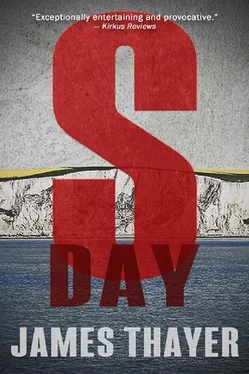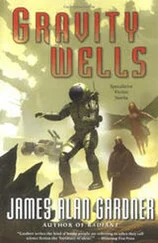James Thayer - S-Day - A Memoir of the Invasion of England
Здесь есть возможность читать онлайн «James Thayer - S-Day - A Memoir of the Invasion of England» весь текст электронной книги совершенно бесплатно (целиком полную версию без сокращений). В некоторых случаях можно слушать аудио, скачать через торрент в формате fb2 и присутствует краткое содержание. Год выпуска: 2015, Издательство: Sacajawea Publishing, Жанр: Альтернативная история, Триллер, prose_military, на английском языке. Описание произведения, (предисловие) а так же отзывы посетителей доступны на портале библиотеки ЛибКат.
- Название:S-Day: A Memoir of the Invasion of England
- Автор:
- Издательство:Sacajawea Publishing
- Жанр:
- Год:2015
- ISBN:нет данных
- Рейтинг книги:3 / 5. Голосов: 1
-
Избранное:Добавить в избранное
- Отзывы:
-
Ваша оценка:
- 60
- 1
- 2
- 3
- 4
- 5
S-Day: A Memoir of the Invasion of England: краткое содержание, описание и аннотация
Предлагаем к чтению аннотацию, описание, краткое содержание или предисловие (зависит от того, что написал сам автор книги «S-Day: A Memoir of the Invasion of England»). Если вы не нашли необходимую информацию о книге — напишите в комментариях, мы постараемся отыскать её.
S-Day: A Memoir of the Invasion of England — читать онлайн бесплатно полную книгу (весь текст) целиком
Ниже представлен текст книги, разбитый по страницам. Система сохранения места последней прочитанной страницы, позволяет с удобством читать онлайн бесплатно книгу «S-Day: A Memoir of the Invasion of England», без необходимости каждый раз заново искать на чём Вы остановились. Поставьте закладку, и сможете в любой момент перейти на страницу, на которой закончили чтение.
Интервал:
Закладка:
General Clay fired back, repeatedly squeezing the trigger, emptying the ten-round magazine in a few seconds.
The Messerschmitt emitted black smoke, and pieces of the engine blew away, followed by a sheet of the cowling. At the same instant, the rudder tore free. The fighter shuddered, arid its port wing suddenly rose, tipping the plane onto its side. The elevators ripped off, and the Messerschmitt flipped onto its back. The hatch popped off, and the pilot’s arm emerged as he struggled to climb out. It was too late. The Messerschmitt shot into the ground, parts of it spewing toward us across the field. A cloud of flame instantly engulfed the wreckage.
The general appeared to think nothing of it. He nodded approvingly as a white Ford ambulance emerged from the woods and quickly crossed the field to the overturned jeep. He casually asked Markham, “Can you get her going again?”
The corporal was gaping at the blaze. Dumfounded, he took a moment. “Pardon? The jeep? I think so.”
Damage to the vehicle was limited to a sprung hood and a bent push bar. Markham pressed on the starter. After a moment of grinding, the engine rolled over. Clay slammed down the hood, then pushed the rifle back behind Markham’s legs and climbed in.
“Don’t dally, Corporal. I’ve got to get down this road.”
I returned to my post behind the seats, and Markham backed the jeep onto the road. He shifted into forward, and we began again toward Rye.
Now, this is precisely what I saw, as did perhaps a thousand soldiers of the 2nd Infantry peering down at us from the hills. Of course, no Lee Enfield rifle is going to bring down a Messerschmitt. We learned later that it had been the pilot’s hard luck to perform his banking maneuver right above fifteen antiaircraft mobile batteries, quadruple .50-caliber Browning M2 machine guns mounted on wheeled trailers, hidden in the woods on the rise. On the German’s second run at us, they all opened up, gleefully firing through branches and leaves, enveloping the Messerschmitt in a web of fire. This was the AA crews’ first combat, and they made the most of it, firing eleven thousand rounds between them, we learned later.
General Clay never claimed to have hit the plane and, indeed, was a bit embarrassed by his rash action. Yet, he had fired the Lee Enfield and the plane had come down. Within hours, most Americans in southern England knew their commander had single-handedly downed a Messerschmitt. The legend was born.
We passed to the west of Rye, which was once on the coast, but is now considerably inland due to the shingles and silt that have clogged the bay over the centuries. To reach the town, boats must sail two miles up the Rother on the flood tide, then be prepared to settle into the mud as the tide goes out. The general wanted to inspect the beach again.
We turned off the road and drove onto a low dune near the mouth of the river, the jeep’s wheels sinking almost to the hubs as we crossed the sand. We kept well inland of a series of “Danger—Mines” signs. The beach stretched for miles before us, the pale sand contrasting with the radiant blue of the channel and sky.
The beach was littered with twisted metal, cement blocks, wood posts, and wire, reminding me of an abandoned construction site. Flatbed trucks were crossing the beach, carting material and ferrying engineers. Other soldiers were laying wire and filling bags. Fortifications hid thousands of other troops from the Luftwaffe fighters, which might at any moment appear. Each work crew had a spotter, which never lowered his binoculars. Sirens on poles would wail if enemy planes were spotted.
“Jack, take off your coat, will you?” the general said.
“Sir?” I hastily removed my wool overcoat. It was brisk in the back of the open jeep.
“A commander and his staff should never wear warmer clothes than men at the front. Stop at that wire array, Corporal.”
We pulled up next to a length of dannert wire, unrolled coils clipped to support posts. Soldiers working with the wire turned to the general as he got out of the jeep. They smiled and wiped their hands on their uniforms.
“Morning, General,” several shouted. They stepped eagerly toward the jeep.
“Men, look at yourselves,” the general answered with mock anger, pointing at several of them. “You are damn near out of uniform.”
The soldiers laughed. Although they wore steel-reinforced gloves, and a few had leather aprons similar to blacksmiths’, their shirts and breeches were in tatters, victims of the wire’s barbs. Even leather boots were torn, and some were held together by canvas wraps. As always happened, soldiers quickly gathered around General Clay.
“You injured, Private?” Clay nodded toward a soldier, whose blood was dripping along the tongue of one of his boots.
“No, sir.” The private looked fourteen years old, with the skin of a peach and wide eyes. “A few scratches.”
“That’s what you joined the engineers for, right?”
“Yes, sir. For that very reason.”
The others joined the general in the laugh. These were the men of the 2nd Engineers Battalion. Many of them had seams of blood along their faces and red blotches on their trousers and pants, the results of wrestling with barbed wire.
“You look after that, Private,” the general said loudly, as always with his combat soldiers. “I don’t want you working when injured.”
“Yes, sir.”
A jeep sped toward us along the beach, undoubtedly Major General Burt Jones, commander of the 2nd Infantry Division, whose beach we were on.
The general added, “But I’ll be damned if I’ll be issuing you a Purple Heart for a few nicks, either.”
More laughter, which surged and faded in the channel wind. The jeep rolled up, and Jones jumped to the sand. “Good morning, sir. Nothing like a surprise inspection at 0800.” [2] All times will be given in British Double Summer Time. Germany was on German Central Time, one hour later.
Clay and Jones had served in the same unit in the Great War, and this gave Jones license to needle his superior. A crowd was assembling before Clay, who played to it. Again, quite loudly, Clay said, “I heard you were breaking these guys’ collective butts, and I’ve come by to make sure it was the truth.”
A round of “It is” and “You heard right” came from the soldiers.
Burt Jones was called Two Inch, but never to his face. It was thought he always wore two-inch platforms in his boots. He was a good five-four or so, alleged platforms included. He claimed he owed his life to his short stature. In the Meuse-Argonne sector in November 1918, mortar fragments had decapitated a taller American soldier running next to him, but had left Jones intact. Nevertheless, Jones walked rigidly, as if he had a poker for a backbone. His features were sized to his stature, with small eyes and a chip of a nose. But he spoke in a rich bass. Without his raising his voice, his orders carried fifty yards.
Jones stepped close, out of earshot of his troops, and said, “The resupply party got here just before dawn. That’s their material you see being installed on the beach.”
“Is it enough?” Clay asked, undoubtedly knowing the answer.
Jones inhaled loudly. “You know, General, I don’t give a damn which day they come. But if I just knew which tide. We’re spread too thin.”
“Admiral Fairfax believes it’ll be low tide.” Clay’s eyes followed the line of surf. “That’ll give them what the admiral calls a dry attack. He argues that in the half-hour between landing and the rise of the tide, our posts and traps can be destroyed by German combat engineers. They’d avoid a high tide, when many of their landing craft would be pinioned and their bellies torn open.”
Jones said. “Even so, I think it’ll be high tide.”
Читать дальшеИнтервал:
Закладка:
Похожие книги на «S-Day: A Memoir of the Invasion of England»
Представляем Вашему вниманию похожие книги на «S-Day: A Memoir of the Invasion of England» списком для выбора. Мы отобрали схожую по названию и смыслу литературу в надежде предоставить читателям больше вариантов отыскать новые, интересные, ещё непрочитанные произведения.
Обсуждение, отзывы о книге «S-Day: A Memoir of the Invasion of England» и просто собственные мнения читателей. Оставьте ваши комментарии, напишите, что Вы думаете о произведении, его смысле или главных героях. Укажите что конкретно понравилось, а что нет, и почему Вы так считаете.












